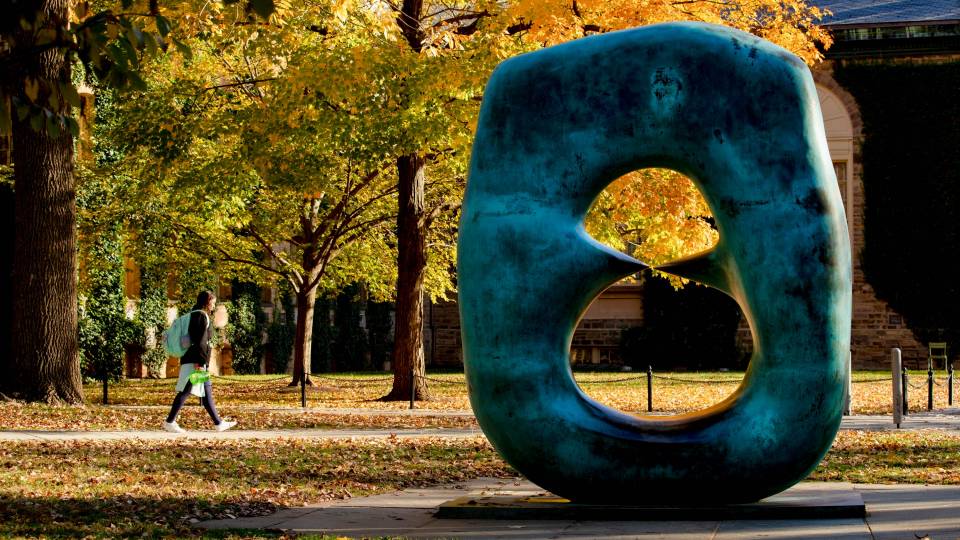The University has informed faculty, students and staff of plans to offer limited quantities of the H1N1 flu vaccine to selected groups on campus starting next week, with further shipments of the vaccine expected to be received from the state in limited quantities throughout the fall and winter.
The New Jersey Department of Health and Senior Services is overseeing distribution of the H1N1 flu vaccine to providers in the state, including the University. In order to be eligible to receive the vaccine, providers had to agree to distribute vaccinations according to the Centers for Disease Control and Prevention (CDC) prioritization guidelines.
At this time, the University expects to offer vaccinations to individuals whose primary health care provider is University Health Services (UHS). This includes all undergraduate and graduate students, as well as dependents of students whose primary health care provider is UHS.
In addition to students, the University will provide the H1N1 vaccine to two groups of staff who are considered high priority by the CDC. These high-priority staff groups are health care workers from UHS and emergency responders from the Department of Public Safety who transport sick students to and from the University's McCosh Health Center.
In an e-mail to students, faculty and staff sent by University Health Services and the Office of Environmental Health and Safety on Oct. 29, administrators explained that, given the limited doses of the vaccine currently available from the state, the University is not able to offer the vaccine to all members of the campus community at this time.
Faculty and staff who are not included in the two high-priority groups were informed that they may contact their personal physicians or a local health department to determine how and when they may receive the H1N1 vaccine from other providers. The state has approved several doctors' offices, hospitals, local health departments and other groups to distribute the H1N1 vaccine as per the same CDC prioritization guidelines that the University must follow.
The University must await more information about state vaccine distribution plans to determine whether it will be able to offer the H1N1 vaccine to faculty and staff as the vaccine becomes more widely available.
UHS and EHS detailed in their e-mail to students and employees how the vaccine will be distributed on campus and the order in which students may receive the vaccine from UHS.
As doses of the vaccine are received from the state, UHS will contact eligible campus groups directly about when they may receive the vaccine at designated campus locations, in accordance with the CDC's guidelines. The University will not be able to provide vaccinations to all eligible groups during the same period of time because vaccine doses are limited and will be distributed by the state in staggered shipments.
As explained in the campus e-mail, the vaccine will be administered to students per CDC guidelines in the following order:
- Pregnant students (or dependents)--UPDATED: Pregnant women will be required to present documentation from a health care provider confirming their pregnancy. Individuals must complete the online H1N1 vaccine registration form to be notified via e-mail about when and where this vaccine will be available.
- Students who are caregivers of babies less than six months old. These students must present the baby's birth certificate as confirmation. Individuals must complete the online H1N1 vaccine registration form to be notified about when and where this vaccine will be available.
- Students 24 years old and younger with pre-existing medical conditions that put them at higher risk for flu complications. Students with high-risk medical conditions, such as asthma, diabetes, heart disease, kidney disease and compromised immune systems, should have already identified themselves to UHS. Students who have not done so must complete the online H1N1 vaccine registration form. Students who have not previously identified themselves also will need to submit documentation to UHS from a health care provider in order to be placed on the list of high risk students.
- Students 24 years old and younger who do not have pre-existing medical conditions.
- Students 25 years old and older with pre-existing medical conditions that put them at higher risk for flu complications. High-risk students should have already identified themselves to UHS. Students who have not done so already will need to submit documentation to UHS from a health care provider in order to be placed on the University's list of high risk students.
- Remainder of the student population who do not fall under the above guidelines.
Students and eligible student dependents who are on the University's student health plan (SHP) have been informed that they may receive the H1N1 vaccine from the University at no cost. Individuals who are not on the student health plan will be charged a nominal fee of $15 to cover the administrative costs of distributing the vaccine, though the cost of the vaccine may be submitted to private insurance companies for reimbursement. The University also has made financial assistance available to students who are unable to pay the administrative fee. Students have been encouraged to contact UHS to request assistance.
The University will update members of the campus community about vaccine availability and the immunization schedule via e-mail and on the University's H1N1 web page.

